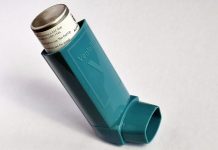Are you aware that even sunshine causes allergy? Though it is rare, it is quite possible for anyone to have sun allergy.
If you are sensitive to direct exposure to sun, it can trigger your immune system and stimulates the inflammatory cells and proteins of your skin.
As a result, you can experience itchy skin, hives or red rashes on your skin (skin rash).
Mostly, certain medications which you use to treat your general health conditions or chemicals can significantly develop sensitiveness in your skin to sun exposure.
Which one of these do you have? Most common types of skin allergies!
There are many types of sun allergies, which mainly cause damage to your skin [Skin allergy]. Some of the most common sun allergies can mainly include:
Polymorphous light eruption (PMLE): This is one of the most common types of sun allergy that mainly affects children. With this type of sun allergy, you can experience irritating and itchy skin, which usually appears in spring season.
If you develop PMLE, it can potentially make your skin to become more sensitive to regular sun exposure.
Actinic prurigo: This is considered as one of the hereditary forms of PMLE. The rashes caused due to this type of sun allergy more prominently appear on your neck, face and also around your lips.
If you have this type of sun allergy, immediately within 2 hours of sun exposure, you can possibly develop rashes on your skin along with headache, chills and also nausea.
Are you following essential measures to prevent sun allergy?
Whenever you notice any kind of allergic symptoms on your skin, it is better for you to prevent your skin from over exposure. Here are certain preventive measures which you can follow to minimize your allergic symptoms.
- Never allow your skin to get in the sun between 11AM to 2PM. Because at this particular period, the radiation of sun rays will be at peak levels, due to which you can experience various allergic symptoms.
- Whenever you go out from your house, wear long-sleeved clothes and also a hat that provides plenty of shade to cover your face.
- Use sunscreen lotions with 12-15 SPF factor in turn to prevent skin burns and exposure of your skin to UV radiation.
- Drink plenty of water to avoid dehydration of your body.
Take necessary suggestions from your personal doctor to prevent sun allergies. Whenever you feel that you are sensitive to sunshine, immediately consult your physician and know more about sun allergy treatment.













